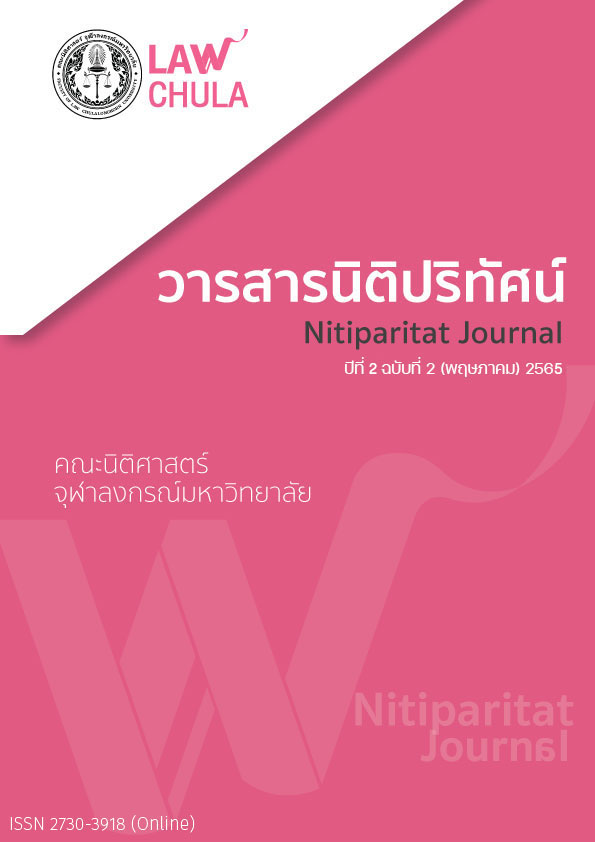Freedom of Travel under the Coronavirus Disease 2019 Situation and the Control of State Powers
Abstract
The right to free movement is one of fundamental human rights guaranteed by international treaties and national constitutions of many countries. However, measures employed by the Thai government to cope with the spread of Covid-19, in particular, those authorized under the 2005 Emergency Decree on Government Administration in States of Emergencies appear to contravene this transnational principle. This article thereby aims to propose recommended modifications for their uses.
References
Oren Gross and Fionnuala Ní Aoláin, Law in Times of Crisis Emergency Powers in Theory and Practice (Cambridge University Press 2006), ch 5.
คดีแดงที่ 446/ 2563.
คำสั่งศาลในคดีดำที่ 1864/ 2563.
Rawin Leelapatana and Chompunoot Tangthavorn, ‘Thailand: Emergency Responses or More Social Turbulence?’ in Victor Ramraj (ed), Covid-19 in Asia: Law and Policy Contexts (Oxford University Press 2021), pp 163-169.
See Khemthong Tonsakulrungruang and Rawin Leelapatana, ‘Thailand’s response to Covid-19: Human Rights in decline and more social turbulence’ in Joelle Grogan and Alice Donald (eds), Routledge Handbook of Law and the COVID-19
Downloads
Published
How to Cite
Issue
Section
License
Copyright (c) 2022 เขตต์ไท ปรีชาฤทธิรงค์, ฐิติพร วรวัฒนากุล, ณัชชา วนวนากร, ธัญภิชญา หนูห้อง, หนึ่งฤทัย กิจการศุภกฤษ

This work is licensed under a Creative Commons Attribution-NonCommercial-NoDerivatives 4.0 International License.
The manuscript is original, does not contain plagiarism, and does not infringe any copyright.



